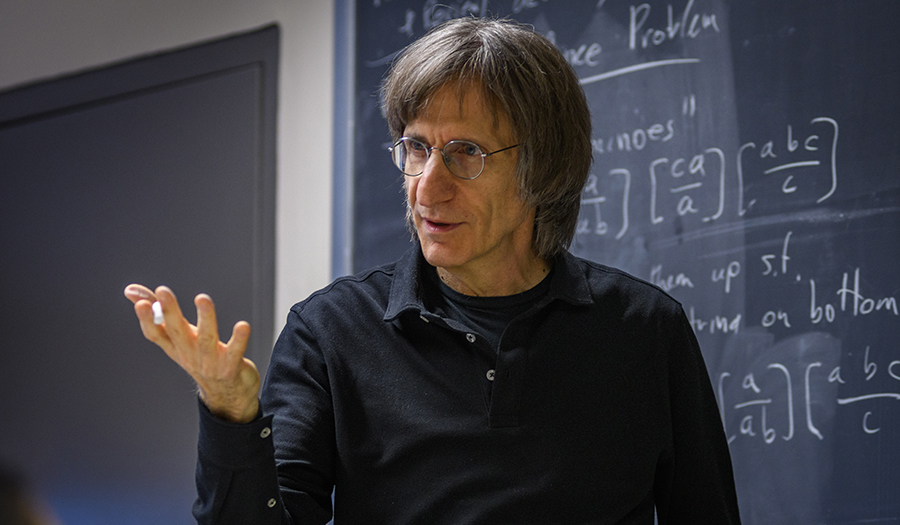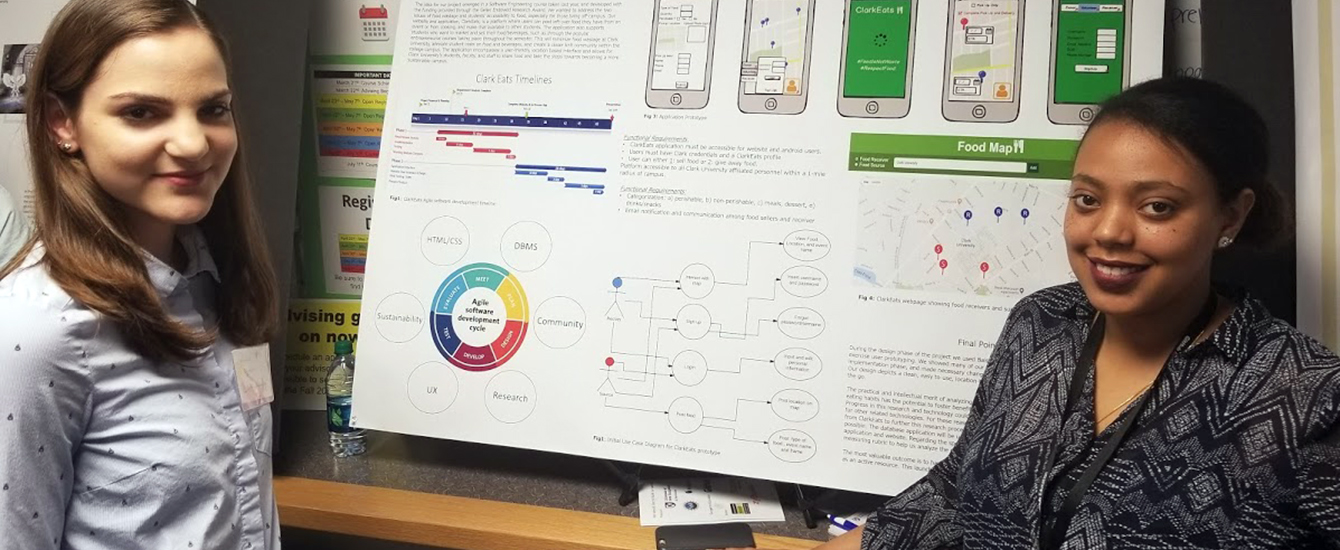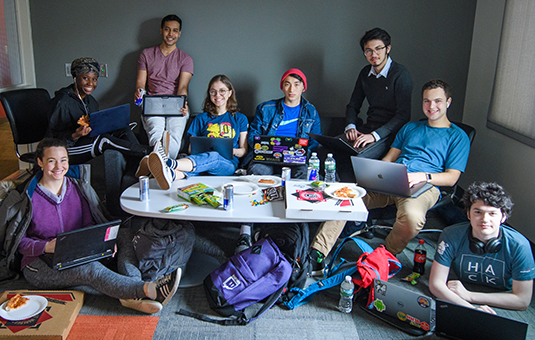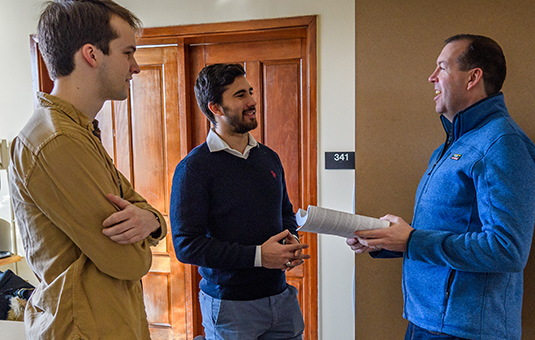
Classical and quantum computing
Frederic Green explores the intrinsic power and limitations of classical and quantum computers.

Our students and faculty love to solve problems. Give them a problem, and they’ll break it down, consider the possibilities, and then jump in. An example: How can you use technology to promote food sustainability on a college campus? A team of students researched the issue, then developed a platform for community members to share excess food, with the goal of decreasing waste and cutting costs.

Automated testing of student programming? Improving accessibility for people with disabilities? Our students delve into research topics that make a difference right here on campus — and beyond.

Our faculty are connected to the latest trends in computing practices and research. If you are interested, they will find a way for you to get involved in projects and gain hands-on experience.
Center for Media, Arts, Computing & Design (CMACD), 3rd Floor
7 Hawthorne Street
Worcester, MA 01610
Notifications